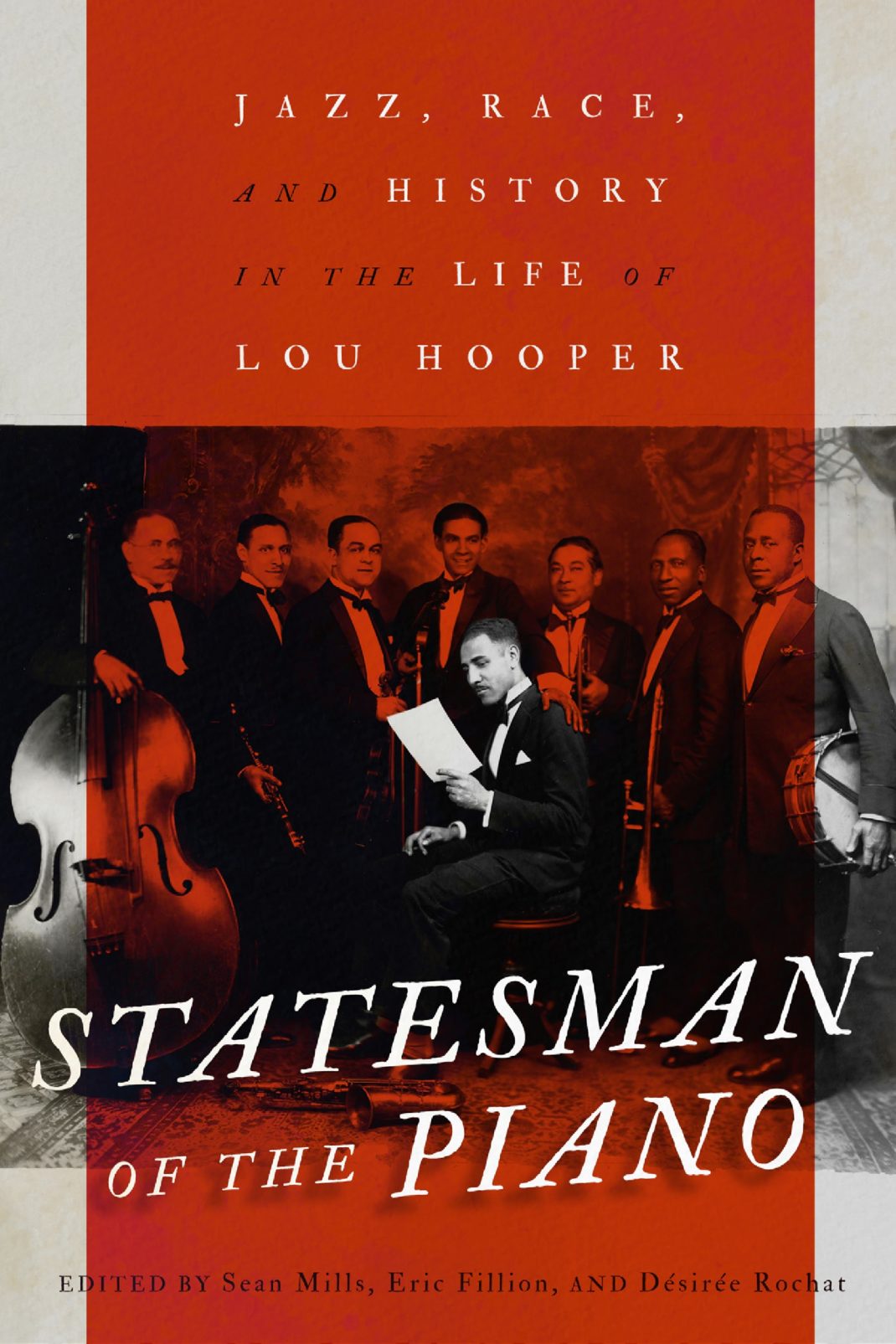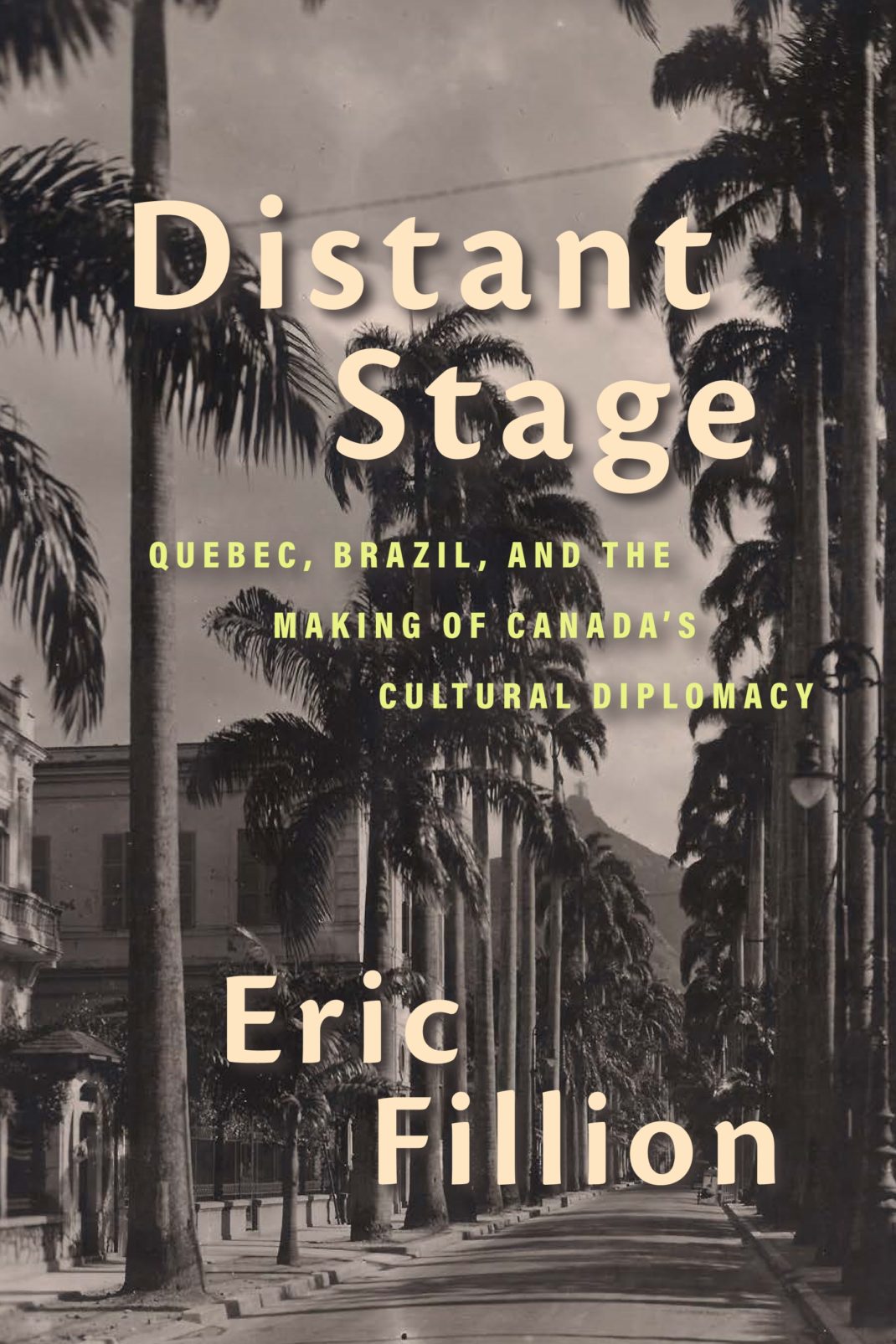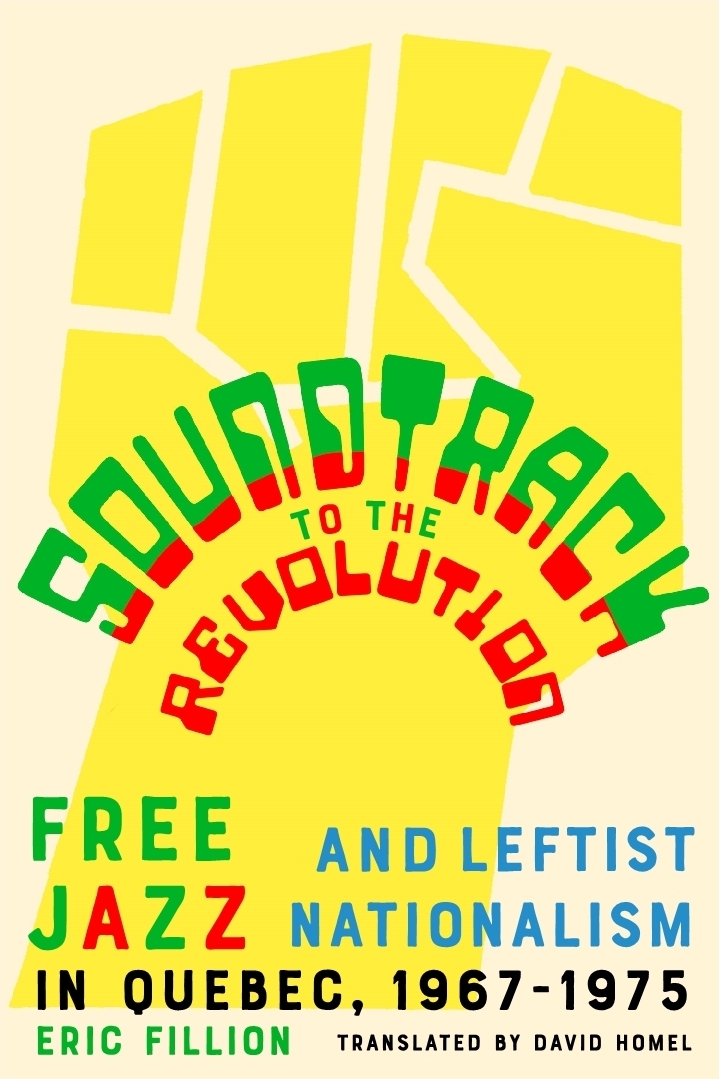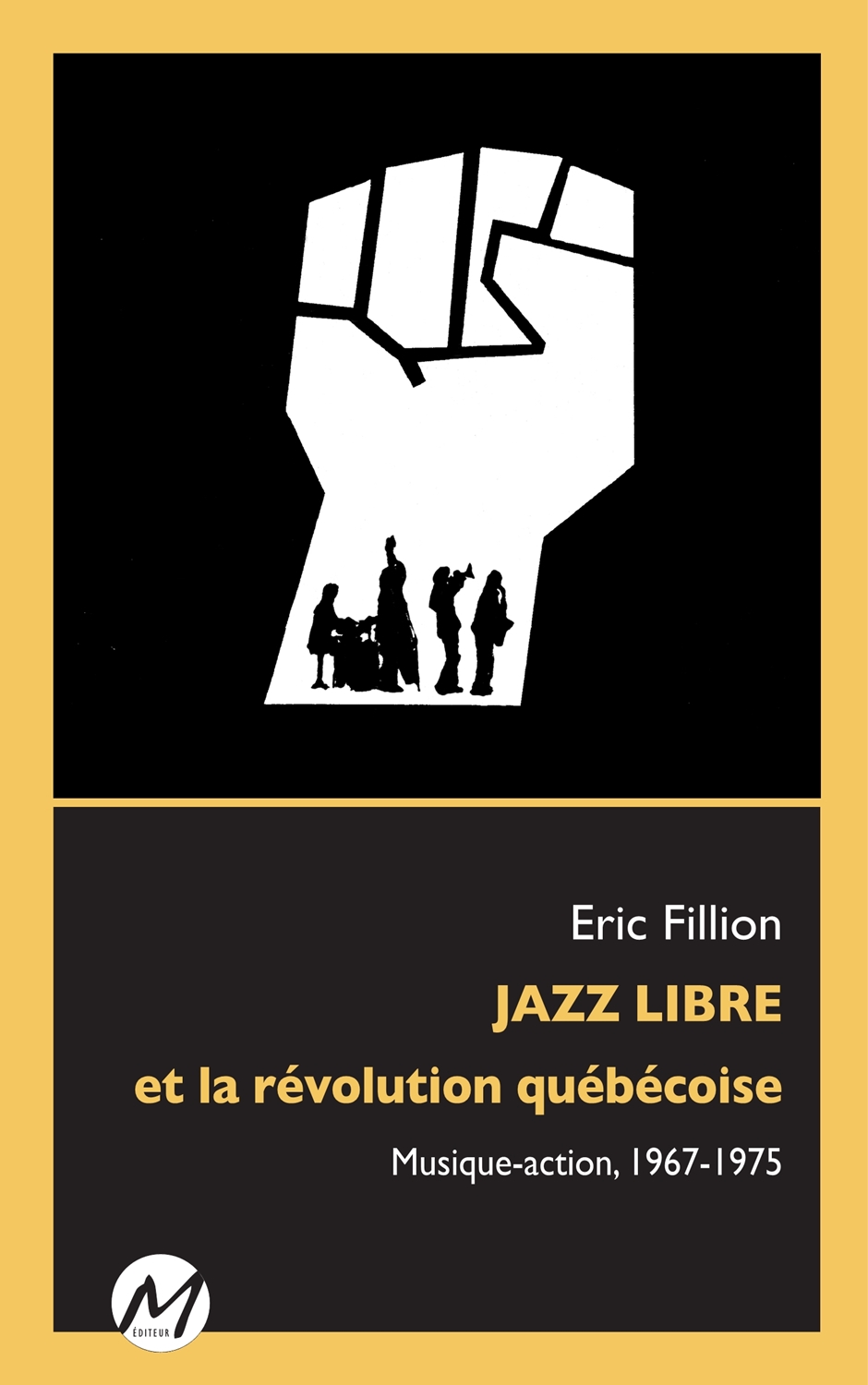Eric Fillion
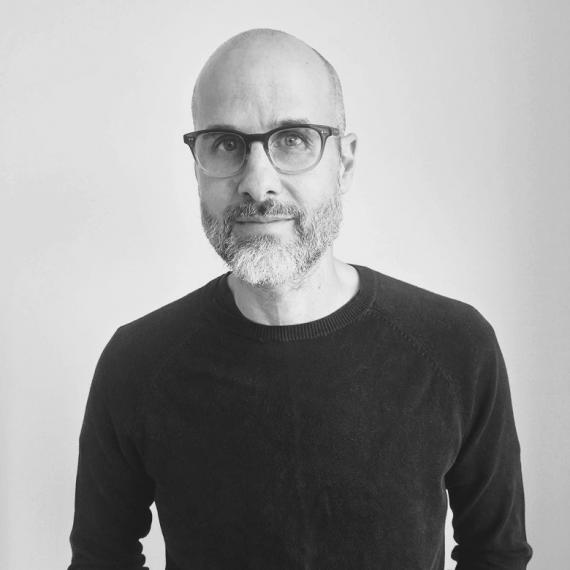
Eric Fillion (PhD History) is director of the International Institute for Critical Studies in Improvisation (IICSI) and assistant professor at the School of Languages and Literatures (SOLAL – French Studies). His ongoing work on the social and symbolic importance of music—within countercultures and in international/intercultural relations—builds on the experience he has acquired as a musician. It also informs his current research on the postwar cultural public sphere in Canada, Quebec, and the Francophone world. His two main projects examine the emergence of the music festival phenomenon and the entangled sonic histories of diasporic social movements, with a focus on both intermediality and improvisation. Eric Fillion is the founder of the Tenzier archival record label and co-editor of the journal Critical Studies in Improvisation. The author of two books, JAZZ LIBRE et la révolution québécoise: musique-action, 1967-1975 and Distant Stage: Quebec, Brazil, and the Making of Canada’s Cultural Diplomacy, he is also the co-editor (with Sean Mills and Désirée Rochat) of Statesman of the Piano: Jazz, Race, and History in the Life of Lou Hooper. He is currently working on a collection (co-edited with Ajay Heble) tentatively titled Ripple Effects: The Active Histories and Possible Futures of Music Festivals.
---------------------------
Eric Fillion (PhD Histoire) est directeur de l’Institut international pour les études critiques en improvisation (IICSI) et professeur adjoint à l’École des langues et littératures (SOLAL – Études françaises). Ses travaux en cours sur la portée sociale et symbolique de la musique—au sein des contre-cultures ainsi que dans les relations internationales/interculturelles—s’inscrivent en continuité avec son parcours de musicien. Ils inspirent aussi ses recherches sur la sphère publique culturelle de l’après-guerre au Canada, au Québec et dans le monde francophone. Ses deux principaux projets portent sur l’émergence du phénomène des festivals de musique ainsi que l’histoire sonore et croisée des mouvements sociaux diasporiques, en mettant l’accent sur l’intermédialité et l’improvisation. Eric Fillion est le fondateur de Tenzier, un organisme voué à la mise en valeur d’archives sonores des avant-gardes québécoises, et corédacteur de la revue Études critiques en improvisation. Auteur de deux livres, JAZZ LIBRE et la révolution québécoise: musique-action, 1967-1975 et Distant Stage: Quebec, Brazil, and the Making of Canada’s Cultural Diplomacy, il est aussi codirecteur (avec Sean Mills et Désirée Rochat) de Statesman of the Piano: Jazz, Race, and History in the Life of Lou Hooper. Il prépare en ce moment un ouvrage collectif (codirigé avec Ajay Heble) dont le titre provisoir est Ripple Effects: The Active Histories and Possible Futures of Music Festivals.
BOOKS | LIVRES
ARTICLES AND CHAPTERS (SELECTED) | ARTICLES ET CHAPITRES (CHOISIS)
English
— and Ajay Heble. “Afterword: The Work That Music Festivals Do." In Festival Activism, edited by David A. McDonald, Andrew Snyder, and Jeremy Reed. Bloomington: Indiana University Press [forthcoming] 2025.
— “Keeping Time with Oscar Peterson: Between Jazz Archives and the Concert Hall.” In Concordia at Fifty: A Collective History, edited by Monika Kin Gagnon and Brandon Webb, 299-306. Montreal: Concordia University Press, 2024.
—, Sean Mills, and Désirée Rochat. “Lou Hooper’s ‘Rediscovery.’” In Statesman of the Piano: Jazz, Race, and History in the Life of Lou Hooper, edited by Eric Fillion, Sean Mills, and Désirée Rochat, 3-20. Montreal and Kingston: McGill-Queen's University Press, 2023.
— “Talking Jazz at the Stratford Shakespearean Festival, 1956-58.” In North of America : Canadians and the American Century, 1945-60, edited by Michael Stevenson and Asa McKercher, 315-340. Vancouver: UBC Press, 2023.
— and Ajay Heble. “Summer Music Festivals Do More than Entertain, They Help Us Imagine Possible Futures.” The Conversation. 13 July 2023.
— “Pop Friction: Performing Canada at the Festival Internacional da Canção Popular, 1966-69.” Canadian Journal of Latin American and Caribbean Studies 48, no. 1 (2023): 72-91.
— “Youth, Drugs, and Surveillance at Manseau’s Woodstock Pop Festival.” In Pleasure and Panic: New Essays on the History of Alcohol and Drugs, edited by Dan Malleck and Cheryl Warsh, 77-105. Vancouver: UBC Press, 2022.
— “P.K. Page and the Art of Diplomacy: An Ambassadorial Wife in Brazil.” In Breaking Barriers, Shaping Worlds: Canadian Women and the Search for Global Order, edited by Greg Donaghy, Jill Campbell–Miller, and Stacey Barker, 229-265. Vancouver: UBC Press, 2021.
— “Patrick Straram: Blues clair X Blues clair.” In Vincent Meessen. Blues Klair, edited by Vincent Meessen and Michèle Thériault, translated from the French by Jo-Anne Balcaen, 217-226. Montreal: Leonard & Bina Ellen Gallery (in partnership with The Power Plant Contemporary Art Gallery), 2021.
— “Harmonium in California: Musically Imagined Communities and the Rockumentary Form.” In Mapping the Rockumentary: Images of Sound and Fury, edited by Gunnar Iversen and Scott MacKenzie, 250-262. Edinburgh: Edinburgh University Press, 2021.
— “The New Quebec Man: Activism and Collective Improvisation at Petit Québec libre, 1970-73.” In Making Men, Making History: Canadian Masculinities Across Time and Place, edited by Peter Gossage and Robert Rutherdale, translated from the French by Steven Watt, 236-254. Vancouver: UBC Press, 2018.
Français
— « En rythme avec Oscar Peterson: entre archives du jazz et salle de concert. » Dans Concordia à 50 [titre provisoir], sous la direction de Monika Kin Gagnon et Brandon Webb, traduit de l'anglais par Isabelle Cardin-Simard. Montréal: Septentrion, [à paraître] 2025.
— « Patrick Straram: Blues clair X Blues clair. » Dans Vincent Meessen. Blues Klair, sous la direction de Vincent Meessen et Michèle Thériault, 227-235. Montréal: Galerie Leonard & Bina Ellen (en partenariat avec The Power Plant Contemporary Art Gallery), 2021.
— « La vidéo expérimentale au Québec et ses amorces. » Dans XPQ. Traversée du cinéma expérimental québécois, sous la direction de Ralph Elawani et Guillaume Lafleur, 146-167. Montréal: Éditions Somme toute / Cinémathèque québécoise, 2020.
— « Dans les marges de l’histoire: penser l’archive à sa source. » MOQDOC: The Journal of the Art Libraries Society of North America – Montréal, Ottawa, Québec, 11 décembre 2020.
— « Parti pris pour le jazz ou l’écoute engagée chez la gauche québécoise. » Dans Avec ou sans Parti pris: le legs d’une revue, sous la direction de Gilles Dupuis, Karim Larose, Frédéric Rondeau et Robert Schwartzwald, 425-448. Montréal: Éditions Nota bene, 2018.
— « Jazz libre: musique-action ou la recherche d’une praxis révolutionnaire au Québec (1967-1975). » Labour / Le Travail 77 (printemps 2016): 93-120.
— « Jazz libre et free jazz. » Dans La contre-culture au Québec, sous la direction de Karim Larose et Frédéric Rondeau, 25-54. Montréal: Presses de l’Université de Montréal, 2016.
— et Jean-Pierre Sirois-Trahan. « Intermédialité(s): le cinéma rock au Québec. » Nouvelles Vues 16 (printemps-été 2015).
— « Le rock québécois débarque en France. À soir on fait peur au monde, Tabarnac, ou: le retour par le rockumentaire. » Nouvelles Vues 16 (printemps-été 2015).
— « Québecamor (1972). » Présentation d’un scénario inédit d’Emmanuel Cocke. Nouvelles Vues 16 (printemps-été 2015).
— « Art vidéo et musique expérimentale au Québec: Richard Martin, vidéaste-compositeur (1972). » Hors champ (4 février 2014).
— « Le sahabi de Sonde: évolution et mutation d’une source sonore. » Circuit: musiques contemporaines 23, 1 (2013): 9-14.
— « L’image électronique vue par Jean-Pierre Boyer: du feedback au vidéo-cortex. » Hors champ (11 juillet 2013).
— « Kid Sentiment: la parrhèsia chez Jacques Godbout et Les Sinners. » Nouvelles Vues 13 (hiver-printemps 2012).
— « Il ne faut pas mourir pour ça: la survivance chez Jean Pierre Lefebvre. » Hors champ (24 février 2011).
— « La vie heureuse de Léopold Z: Gilles Carle et le cinéma du possible. » Hors champ (24 novembre 2010).
— « Étienne O’Leary: musiques de films (1966-1968). » Hors champ (3 novembre 2010).
— « Le chat dans le sac: jazz et transcendance selon Gilles Groulx. » Hors champ (22 août 2010).
— « À tout prendre: le cinéma Beat chez Claude Jutra. » Hors champ (2 juin 2010).
